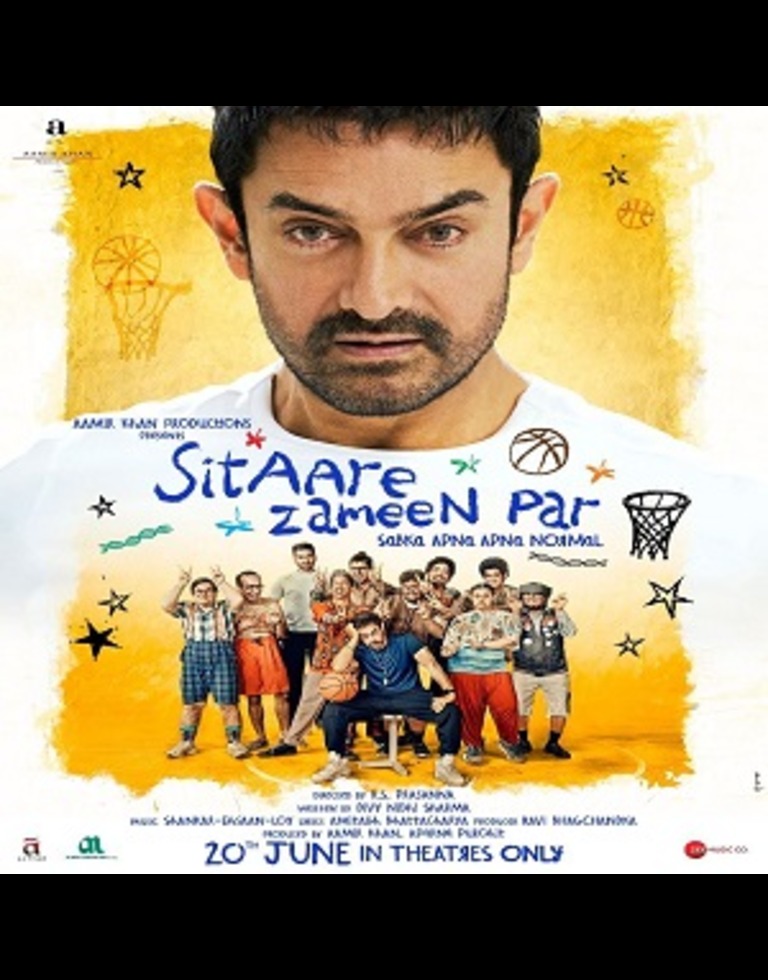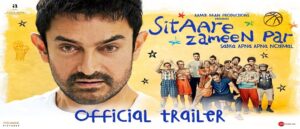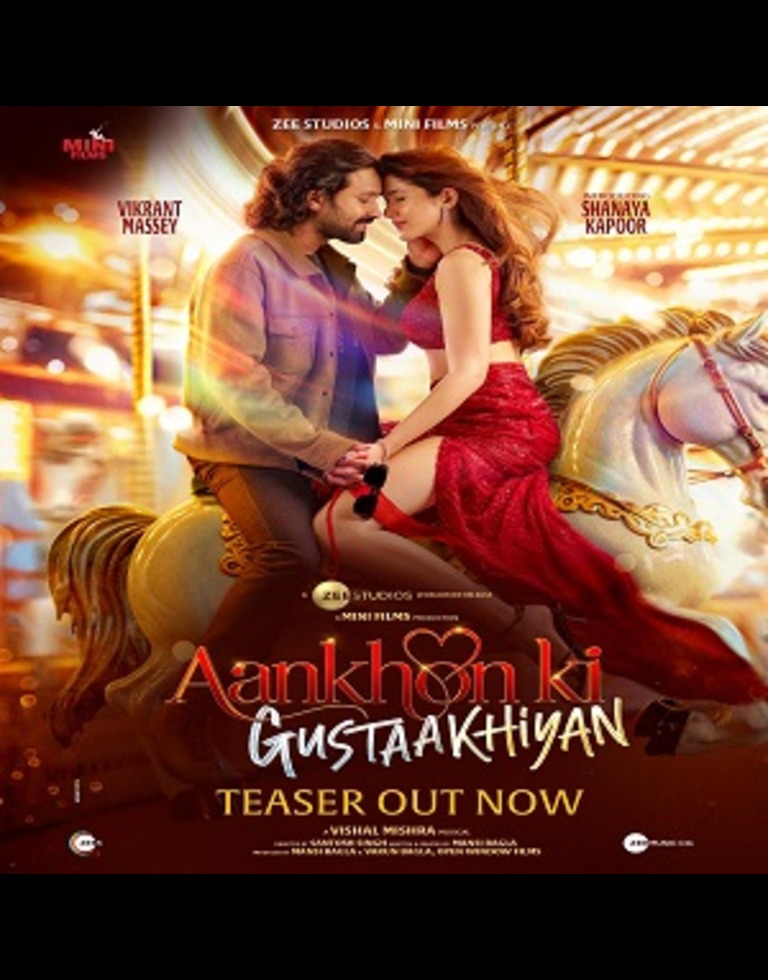

Sitaare Zameen Par is a heartfelt family drama that celebrates the transformative power of music and mentorship. Directed by Rhea Saxena, the film follows the journey of Meera Sharma (Radhika Madan), a once-celebrated classical singer whose life has fallen silent after personal tragedy. When she reluctantly agrees to coach a ragged children’s choir in a small town, she rediscovers purpose and passion—setting the stage for an uplifting tale of redemption, talent, and togetherness.
🎭 Plot & Themes
The story begins with Meera in isolation, dealing with the sudden loss of her fiancé and the subsequent collapse of her singing career. Withdrawn and disillusioned, she declines a teaching offer—until a childhood friend, Kabir Singh (Shahid Kapoor), convinces her that music can heal. Reluctantly she takes charge of a modest children’s choir at a local arts center.
What unfolds is the transformation of shy, underprivileged kids into confident performers. Each rehearsal reveals a hidden talent—be it a young boy whose rap beats echo his tough street life or a girl whose voice soars despite familial expectations. Through setbacks and small victories, the film explores themes of grief, resilience, and the beauty of nurturing fresh voices. The central message—that every child has a star within—shines brightly and drives the emotional core.
👩🎤 Performances
-
Radhika Madan inhabits Meera with grace and depth, balancing her role as both mentor and mourner. Her moments of vulnerability—when teaching falters or memories resurface—ring true, making her journey feel genuine and earned.
-
Shahid Kapoor as Kabir provides a warm contrast: optimistic, light-hearted, and emotionally available. His character avoids clichés; instead, he functions as Meera’s anchor, reminding her—and the audience—what it means to stand by those you believe in.
-
The child actors, particularly Vicky Bhatt (as shrimpy but fearless choir member Raj) and Aanya Singh (as a devout singer with stage fright), deliver sweet, believable performances. Their chemistry feels natural, grounded by scenes that show real friendships growing amid shared nerves and excitement.
-
Supporting performers—like Meera’s former guru, Anant Mahadevan, and Kabir’s sister, Divya Dutta—ground the narrative and deliver measured, reassuring presence without overshadowing the children’s journey.
🎶 Music & Musical Direction
Since music is the soul of the film, it’s crucial that it resonate—and it does. Composers Salim–Sulaiman deliver a score that traverses classical, folk, rap, and choir arrangements. The climactic performance is a powerful ensemble piece merging traditional melody with modern exuberance—beautifully staged and impeccably sung by the cast and children alike.
What stands out is the authenticity: music scenes feel organic, rehearsals sometimes raw, perfunctory, or euphoric—in short, alive. The haunting opening sequence, where Meera attempts and fails to sing, quickly contrasts with the children’s rough yet determined early efforts, which gradually evolve into disciplined harmony.
🎥 Direction & Cinematography
Rhea Saxena’s direction balances sentiment and pacing with finesse, never allowing the film to venture into melodrama. Training montages, small-town life, family moments—everything is woven together tightly over a two-hour runtime. Unhurried yet focused, it builds an emotional arc that crescendos in the final performance without feeling rushed.
Cinematographer Vikrant Saini captures both intimate close-ups—Meera’s tear-filled eyes, children’s tentative smiles—and the broader canvas: school corridors awash in dusty light, rehearsal rooms full of chaotic energy, and the climactic stage drenched in warm spotlight. The visual palette supports the emotional journey—from muted greys to vibrant hues as confidence blooms.
⚖️ Strengths & Weaknesses
Strengths:
-
Emotional resonance—the film earns tears and smiles through well-built relationships and moments of sincerity.
-
Music & performance—authentic, varied, and memorable; a true character in itself.
-
Strong lead performances—especially Radhika Madan, who anchors the film with poise.
Weaknesses:
-
Predictable arcs—mentor-teaches-kids structure is familiar and occasionally telegraphed.
-
Underused subplots—Meera’s personal grief, Kabir’s entrepreneurial struggles, and family dynamics are sketched but not deeply explored.
-
Pacing dips—some rehearsal montages overstay their welcome before the final crescendo.
✅ Final Verdict
Sitaare Zameen Par is a moving ode to music’s healing power and the impact a single mentor can have on young lives. Its strength lies in sincere performances, authentic music, and an uplifting emotional journey. Although it leans on familiar tropes and holds back deeper thematic exploration, its warmth, heart, and delightful musical set-pieces make it a rewarding watch—especially for families, music lovers, and anyone who believes in the potential within each child.



